Leaf from an early copy of Arator, De Actibus Apostolorum, in Latin verse, with an apparently unrecorded Carolingian commentary, decorated manuscript on parchment [Germany, second half of tenth century] Single leaf, with single column of 23 lines in a short and square late Carolingian minuscule (last two lines of the heading for ch. 1, followed by the whole of ch. 1, excluding line 22 which has been cut away, the heading for ch. 2 and the first two lines of that chapter), using et-ligature integrally within words, a tall capital 'e' with a long tongue ending in a wedge-stroke and an uncial 'R' (compare hand of a contemporary Jerome: Munich, BSB., Clm 6313: Pracht auf Pergament, 2012, no. 21), near-contemporary interlinear gloss in a tiny hand, this also adding some punctuation, each line beginning with an initial offset in the margin, simple red initials, blind-ruled with this causing lifting of parchment along those lines, somewhat scuffed and discoloured, and with a small hole (without affect to text), trimmed at base with loss of a single line there, overall fair and presentable condition, 163 by 138mm. Provenance: Acquired in 2015 from Australian trade. Text: The sixth-century poet Arator rubbed shoulders with the greatest rulers and scholars of Early Medieval Italy. He served as a lawyer in the Gothic imperial capital of Ravenna, where he was treated with distinction by Emperor Theodoric the Goth (454-526), and protected by Cassiodorus (c. 484-c. 585), the intellectual titan of his age. He left the court about 544, and entered papal service as archdeacon of the Church. It was there he composed this work, a versification of the Acts of the Apostles that attempts to draw out the mystical and moral meanings of the texts. By papal order it was read aloud in the church of San Pietro in Vincoli, Rome, over a number of days, and in written form quickly spread across the empire. The earliest witnesses all come from a sudden bloom of interest in the ninth century, with A.P. McKinley listing twenty examples of that century, four of the ninth or tenth century and eight of the tenth century (Arator. The Codices, 1942, pp. 69-70, and perhaps also 'Membra disiecta of manuscripts of Arator', Speculum, 15, 1940, pp. 95-8). That focus of interest also produced four distinct commentaries in the ninth and tenth centuries (see 'Latin commentaries on Arator', Scriptorium, 6, 1952, pp. 151-156), some in interlinear form as here. The script of the commentary here is scuffed in places and wanting, but enough survives to note that it is not any of those catalogued by McKinley. It may well be another, as yet unstudied, Carolingian interlinear commentary. The text is rare on the market in any form, with the Schoenberg Database recording only two manuscript codices as ever having come to the open market, and none of those in the last century: (i) a fourteenth-century codex offered in Sotheby's, 2 March 1837, lot 974, probably the same reappearing in the same rooms, 20 June 1900, lot 7; (ii) a copy of c. 1450 sold by Evans, 6 February 1832, lot 150, reappearing in Thomas Thorpe's famous catalogue of 1200 manuscripts (1832), no. 63, and then again in Evans, 29 June 1839, lot 1369, to he bookseller Thomas Rodd his cat. of 1841, no. 91; and to these should be added another fifteenth-century copy once owned by the infamous Guglielmo Libri and sold by him to the Ashburnham collection (no. 951 in the 1853 catalogue), and a late fifteenth-century German witness acquired privately by Thomas E. Marston and from him to the Beinecke Library, Yale, in 1964. Only one fragment is known to us, a mid-ninth century fragment in Quaritch, cat. 1036, Bookhands of the Middle Ages (1984), no. 123.
Leaf from an early copy of Arator, De Actibus Apostolorum, in Latin verse, with an apparently unrecorded Carolingian commentary, decorated manuscript on parchment [Germany, second half of tenth century] Single leaf, with single column of 23 lines in a short and square late Carolingian minuscule (last two lines of the heading for ch. 1, followed by the whole of ch. 1, excluding line 22 which has been cut away, the heading for ch. 2 and the first two lines of that chapter), using et-ligature integrally within words, a tall capital 'e' with a long tongue ending in a wedge-stroke and an uncial 'R' (compare hand of a contemporary Jerome: Munich, BSB., Clm 6313: Pracht auf Pergament, 2012, no. 21), near-contemporary interlinear gloss in a tiny hand, this also adding some punctuation, each line beginning with an initial offset in the margin, simple red initials, blind-ruled with this causing lifting of parchment along those lines, somewhat scuffed and discoloured, and with a small hole (without affect to text), trimmed at base with loss of a single line there, overall fair and presentable condition, 163 by 138mm. Provenance: Acquired in 2015 from Australian trade. Text: The sixth-century poet Arator rubbed shoulders with the greatest rulers and scholars of Early Medieval Italy. He served as a lawyer in the Gothic imperial capital of Ravenna, where he was treated with distinction by Emperor Theodoric the Goth (454-526), and protected by Cassiodorus (c. 484-c. 585), the intellectual titan of his age. He left the court about 544, and entered papal service as archdeacon of the Church. It was there he composed this work, a versification of the Acts of the Apostles that attempts to draw out the mystical and moral meanings of the texts. By papal order it was read aloud in the church of San Pietro in Vincoli, Rome, over a number of days, and in written form quickly spread across the empire. The earliest witnesses all come from a sudden bloom of interest in the ninth century, with A.P. McKinley listing twenty examples of that century, four of the ninth or tenth century and eight of the tenth century (Arator. The Codices, 1942, pp. 69-70, and perhaps also 'Membra disiecta of manuscripts of Arator', Speculum, 15, 1940, pp. 95-8). That focus of interest also produced four distinct commentaries in the ninth and tenth centuries (see 'Latin commentaries on Arator', Scriptorium, 6, 1952, pp. 151-156), some in interlinear form as here. The script of the commentary here is scuffed in places and wanting, but enough survives to note that it is not any of those catalogued by McKinley. It may well be another, as yet unstudied, Carolingian interlinear commentary. The text is rare on the market in any form, with the Schoenberg Database recording only two manuscript codices as ever having come to the open market, and none of those in the last century: (i) a fourteenth-century codex offered in Sotheby's, 2 March 1837, lot 974, probably the same reappearing in the same rooms, 20 June 1900, lot 7; (ii) a copy of c. 1450 sold by Evans, 6 February 1832, lot 150, reappearing in Thomas Thorpe's famous catalogue of 1200 manuscripts (1832), no. 63, and then again in Evans, 29 June 1839, lot 1369, to he bookseller Thomas Rodd his cat. of 1841, no. 91; and to these should be added another fifteenth-century copy once owned by the infamous Guglielmo Libri and sold by him to the Ashburnham collection (no. 951 in the 1853 catalogue), and a late fifteenth-century German witness acquired privately by Thomas E. Marston and from him to the Beinecke Library, Yale, in 1964. Only one fragment is known to us, a mid-ninth century fragment in Quaritch, cat. 1036, Bookhands of the Middle Ages (1984), no. 123.



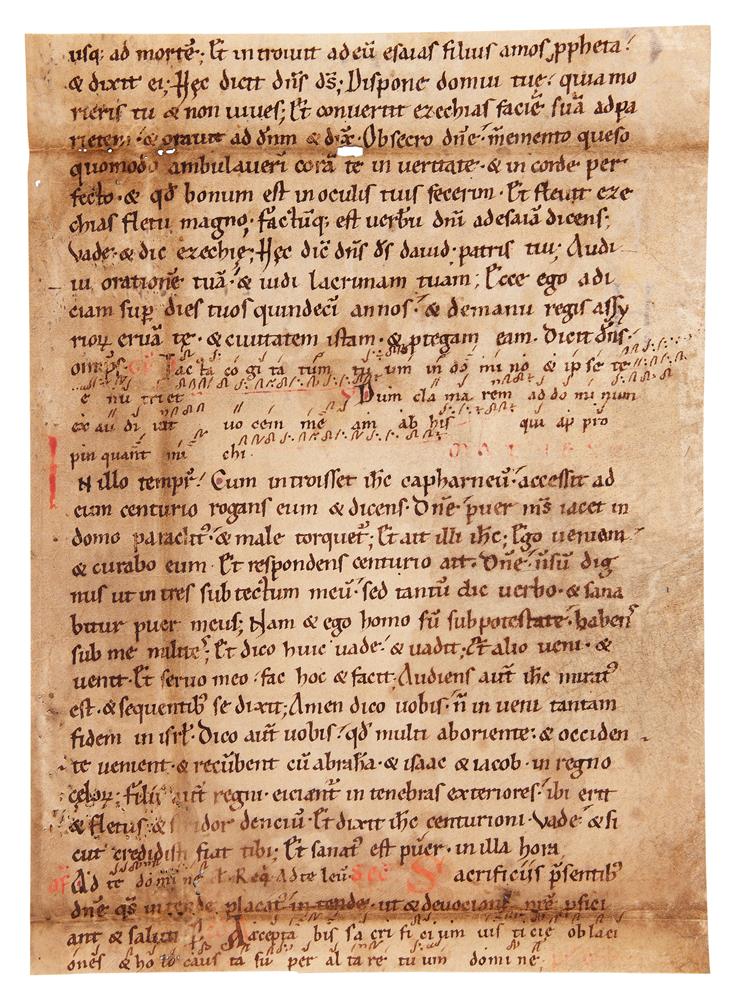



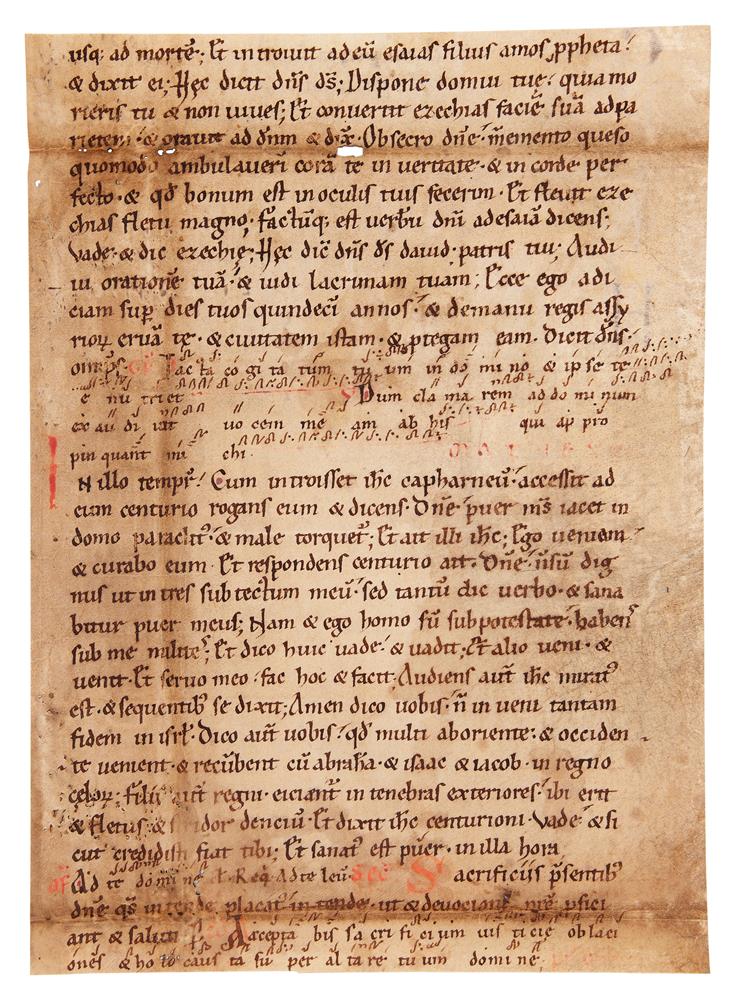
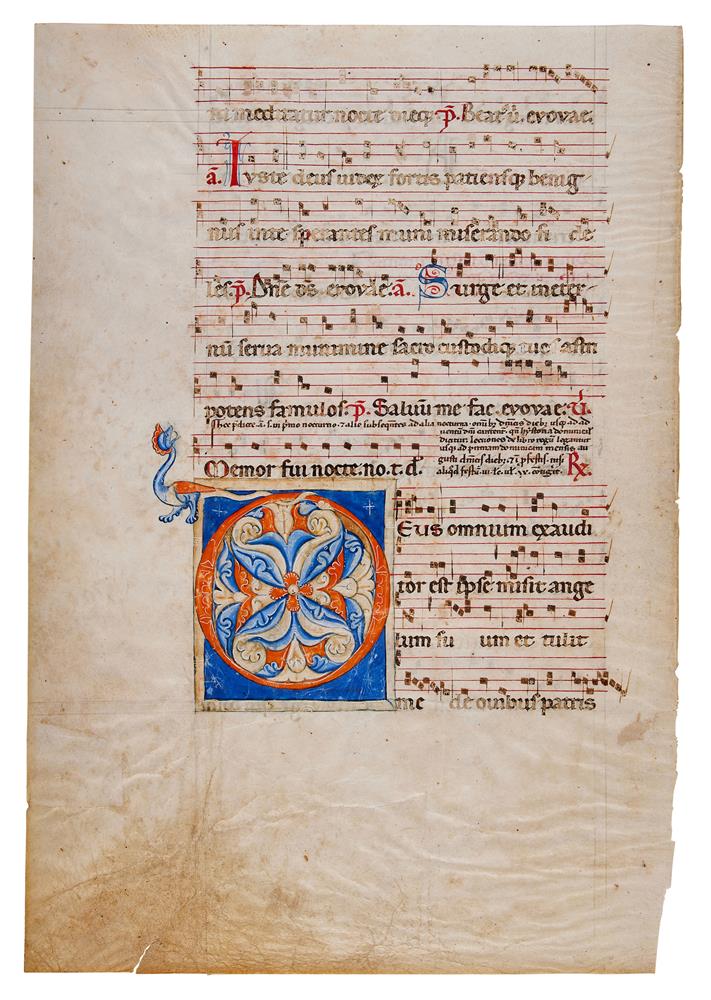
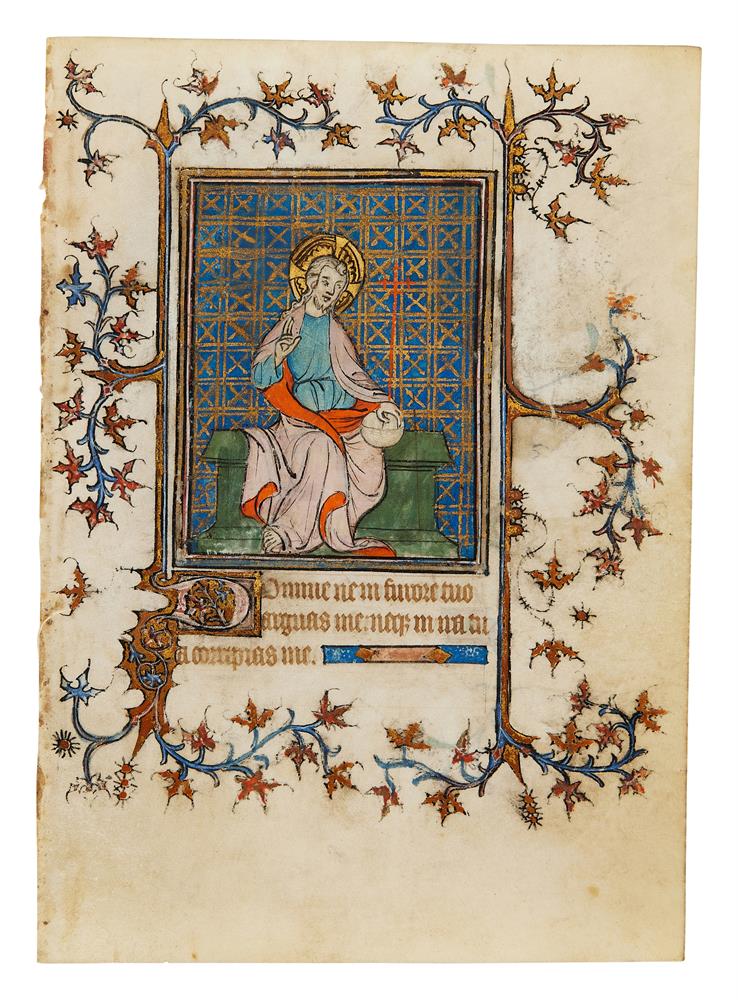


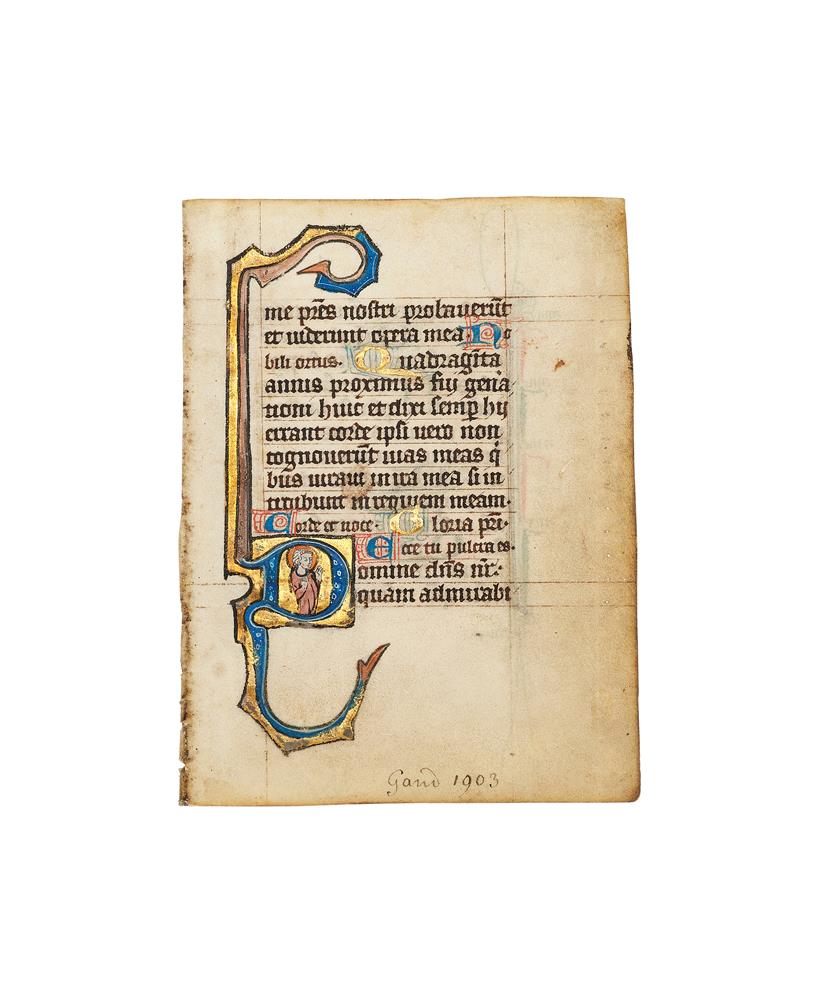

Testen Sie LotSearch und seine Premium-Features 7 Tage - ohne Kosten!
Lassen Sie sich automatisch über neue Objekte in kommenden Auktionen benachrichtigen.
Suchauftrag anlegen